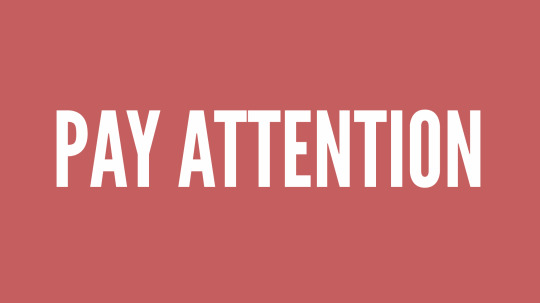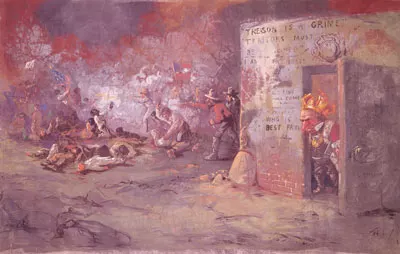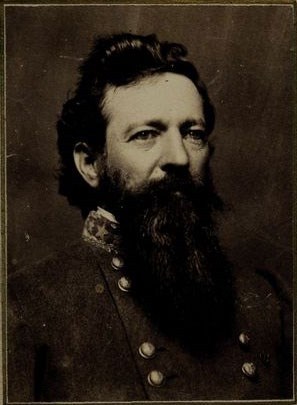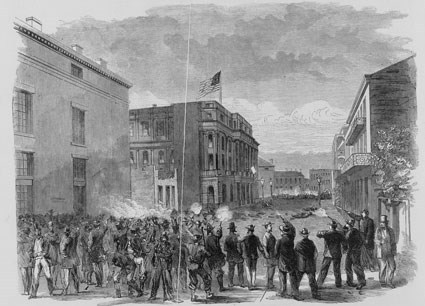#black voting rights
Explore tagged Tumblr posts
Text








#black voting rights#racial injustice#black civic engagement#voting obstacles#black history in america#civil rights struggles#suppression tactics#disenfranchisement history#african american resistance#anti black policies#voter registration barriers#black political power#jim crow era#Here are tags you might consider: black voter suppression#louisiana history#black literacy tests#voting rights act#jim crow laws#racial discrimination#black disenfranchisement#civil rights history#black empowerment#historical racism#grandfather clause#poll taxes#literacy tests
156 notes
·
View notes
Video
youtube
The Louisiana Massacre of 1868 Full Video
Reconstruction or Redistruction. It is the year 1868, and the first Presidential election since Lincoln was underway. The former Confederate Rebels had a chip on their shoulders, as their former property picked up arms and fought to secure their Emancipation.
During reconstruction, The former Rebels created the KKK terrorist organization. Because the former Rebels had made no allegiance to never raise up arms to former slaves. A series of massacres began taking place all over America.
The largest one took place in Opelousas, Louisiana in September 1868. It is estimated that over 300 people were killed. All of them Unionists, and most of them former slaves.
#youtube#The Louisiana Massacre of 1868 Full Video#New Orleans#Opelousas Louisiana in September 1868#Black Voting Rights#lousisana#confederates#Opelousas#white supremacy#white hate#Black Votes Matter
11 notes
·
View notes
Text
If the policies Trump instates beings to hurt the people you love and you voted for him, voted third party, or abstained on some moral high ground I want you to know that is also *YOU* ACTIVELY HURTING THEM.
When the government takes away women’s healthcare and autonomy and you have to sit there at the funeral of your friend, aunt, daughter, sister, or mother I want you to remember YOU killed them.
If you didn’t do your part to keep trump out of office, I hope it haunts your for the rest of your days and keeps you up at night. I hope the guilt never leaves you. We warned you about what would happen and you didn’t listen!
While in a perfect world we wouldn’t have the two party system, we can’t vote like that because we *don’t* live in a perfect world.
People DIED to get the right to vote and if you wasted it then they died for nothing!
#2024 presidential election#us politics#voting rights#donald trump#trump#fuck trump#kamala harris#us election#women’s rights#lgbtq rights#black lives matter#human rights
1K notes
·
View notes
Text
#jasmine crockett#project 2025#stop project 2025#drumpf’s project 2025#agenda 47#agenda 2030#right wing extremism#right wing terrorism#human rights#2024 presidential election#vote blue#vote kamala#kamala 2024#kamala harris#democrats#donald trump#republican propaganda#blacklivesmatter#black lives matter#politics#dump trump#fuck trump#heritage foundation#end white supremacy#meidastouch
1K notes
·
View notes
Text

Black people have culturally subsidized this country since our arrival
#blackisbeautiful#blacktivism#black history#the black narrative#activism#american black radical resistance#resistance#protest#icon#vote#voting rights#get out the vote#civilrights#civil rights movement#belovedcommunity#blackpeople#rootingforeverybodyblack#allblackeverything#problack#panafricanism#afrocentrism#blackpeopleinamerica#blackactivism#blackpride#blackpower#blacktumblr
2K notes
·
View notes
Photo




This year marks the 60th anniversary of “Freedom Summer,” the 1964 voter registration movement in Mississippi. More than 700 volunteers mobilized to fight against voter intimidation and discrimination at the polls.
Freedom Summer volunteers were met with violent resistance from the Ku Klux Klan and members of state and local law enforcement. News coverage of volunteers being beaten, arrested, and even killed drew international attention to the civil rights movement.
The Freedom Summer project ultimately registered nearly 1,200 Black Americans to vote in Mississippi, and pushed Congress to pass the Civil Rights Act of 1964 and the Voting Rights Act of 1965.
This year, let's continue their fight to uplift Black voices and Black votes. Join us in registering voters during our Juneteenth Weekend of Action at weall.vote/juneteenth.
#freedom summer#mississippi#voter registration#civil rights movement#1964#civil rights act#voting rights act#black voices#black votes#black lives matter#blm#black history#american history#juneteenth
500 notes
·
View notes
Text

The only thing keeping me going. Samwise Gamgee 🩵 I won't stop fighting
#november 5th#election 2024#kamala harris#kamala 2024#vote blue#vote democrat#vote harris#lgbtq#black lives matter#womens rights#lgbt pride#lgbtq community
215 notes
·
View notes
Text







#grief#politics#election#us politics#us elections#donald trump#kamala harris#gay#transgender#trans pride#us election#voting#election 2024#american politics#2024 presidential election#us election 2024#lgbtq#lgbtqia#lgbtq community#lgbt pride#hope#despair#dealing with grief#source: black liturgies on instagram - linked#feminism#feminist#trans rights#human rights#women's rights#reproductive rights
306 notes
·
View notes
Text
#black history#blacklivesmatter#black lives matter#black empowerment#black liberation#r#rco benjamin#voting rights#voting#racial injustice#black people#please vote#vote blue#banned books
215 notes
·
View notes
Text

Reminder
#vote#day light savings#november#november 5#november 5th#important#remember#reminder#meme#equality#equal#egalitarian#feminism#feminists#feminist#lgbt#lgbtq#lgbtqia#lgbtqa#lgbtqi#lgbtqiap#lgbtqap#lgbtqip#gay rights#trans rights#blm#womens rights#black lives matter#stop asian hate#trans lives matter
215 notes
·
View notes
Text

Woman voting, 1944
Creds: eliz.avery on Flickr
#harris walz 2024#kamala harris#vote harris#harris 2024#2024 election#vote#women’s rights#history#black and white photography#vintage#vintage photography
182 notes
·
View notes
Text

#voting consequences#supreme court#right wing extremists#election importance#voting rights#women's bodily autonomy#civil rights#living conditions#black community#political stakes#judicial impact#high court influence#long term repercussions#political engagement#voter responsibility#trump#donald trump#trump presidency#trump administration#trump policies#trump controversies#trump supporters#trump impeachment#trump legal issues#trump election#trump campaign#trump legacy
767 notes
·
View notes
Text
“An Absolute Massacre” – The New Orleans Slaughter of July 30, 1866
Reconstruction Era National Historical Park

Political Cartoonist Thomas Nast drew this political cartoon, "The Massacre at New Orleans," criticizing President Andrew Johnson for his role in permitting the violence to unfold in New Orleans on July 30, 166
The Confederate military and government collapsed in the Spring and Summer of 1865, effectively ending the Civil War with the United States preserved and slavery destroyed. But the violence was far from over. White resistance to Black citizenship during Reconstruction often turned violent – as it did in New Orleans on July 30, 1866. During the war, President Abraham Lincoln had hoped that Louisiana, with a strong US military presence in Louisiana would serve as the model for readmitting states back to the United States. In 1864, the state ratified a new constitution that abolished slavery, but did not grant Black Louisianans the right to vote – something that President Lincoln began to consider as the war ended the next year.
In his last speech, delivered on April 11, 1865, Lincoln openly expressed his desire to enfranchise select freed people and emphasized that “…voters in the heretofore slave-state of Louisiana have sworn allegiance to the Union… held elections, organized a State government, adopted a free-state constitution, giving the benefit of public schools equally to black and white, and empowering the Legislature to confer the elective franchise upon the colored man.
Their Legislature has already voted to ratify the constitutional (Thirteenth) amendment recently passed by Congress, abolishing slavery throughout the nation.”1 In the crowd was John Wilkes Booth. Incensed at the thought of Black citizenship and voting, Booth assassinated President Lincoln a few days later. The violence did not stop at Ford’s Theatre.

Harry T. Hays had served as a General in the Confederate Army. But in the Summer of 1866, he was the Sheriff of New Orleans, and deputized a posse of ex-Confederates to confront a citizen's convention in the city.
Gilder Lehrman Institute

This image from Harpers Weekly depicts Confederate veterans opening fire on the crowd in New Orleans. The placement of the US flag in the drawing served as a reminder to readers that some former Confederates had not yet accepted the outcome of the war.
Library of Congress
In a matter of approximately two hours, 34 African American supporters were killed, while the wounded numbered 119. Three of the delegates who had assembled in the Mechanics Institute were killed, while 17 were wounded, and approximately 200 others arrested. When the streets around the Mechanics Institute fell quiet, General Baird ordered martial law, which remained in effect into early August. On August 1, the Cleveland Daily Leader published sentiments that were shared by many other papers across the North: “Remember that this work was done by the constituted authorities of the city of New Orleans, rebels in record and in heart, but placed in power over loyal men by the policy of a renegade President. Remember that these scenes are but a prelude of what is to be… if Mr. Johnson’s policy shall be carried out.”5 Paired with news of the tragedy that occurred in Memphis months before, the New Orleans massacre contributed to major changes in Reconstruction policy. The 1866 elections saw to it that a Radical Republican majority ruled in both the House of Representatives and Senate, and ultimately contributed to the passing of the 14th and 15th Amendments. It could even be said that the violence which transpired on July 30, 1866, in a twist of irony, gave rise to several policies that would be enacted in following years, including Federal military presence in the South, temporary disenfranchisement of former Confederates, and for a population of more than four million freed people - the right to vote. 1 Lincoln, Abraham, and Scott Yenor. “Document 5: Last Public Address.” Reconstruction: Core Documents, Ashbrook Center, Ashland University, 2018, pp. 13–17. 2 O'Donovan, Susan, and Beverly Bond. “‘A History They Can Use’: The Memphis Massacre and Reconstruction's Public History Terrain.” The Journal of the Civil War Era, 10 Jan. 2018, www.journalofthecivilwarera.org/2016/08/history-can-use-memphis-massacre-reconstructions-public-history-terrain/. 3Reynolds, Donald E. “The New Orleans Riot of 1866, Reconsidered.” Louisiana History: The Journal of the Louisiana Historical Association, vol. 5, no. 1, 1964, pp. 5–27. JSTOR, www.jstor.org/stable/4230742. Accessed 30 July 2020. 4 The New-Orleans Riot. Its Official History. New York Tribune, 1866. 5 The Louisiana Convention. Cleveland Daily Leader, 1 August, 1866, p. 1. by Park Ranger Rich Condon, Reconstruction Era National Historical Park
#“An Absolute Massacre” – The New Orleans Slaughter of July 30#1866#Reconstruction Era National Historical Park#New Orleans Massacre#louisiana#Black Voting Rights#confederates#civil war.#white supremacy#Black Freedmen
8 notes
·
View notes
Text
I voted. I tried. I love you.
— Millions of Americans for Kamala Harris
#kamala harris#kamala for president#election 2024#2024 presidential election#tim walz#trump is a felon#anti trump#vote democrat#anti republican#lgbtqia#black lives matter#protect trans kids#women’s rights
163 notes
·
View notes
Text
#amber thurman#say her name#trumps abortion ban#reproductive rights#reproductive health#reproductive justice#reproductive freedom#abortion rights#black women#maternalhealth#cw maternal mortality#blacklivesmatter#black lives matter#women's rights#vote blue#vote kamala#kamala 2024#kamala harris#2024 presidential election#human rights
1K notes
·
View notes
Text
#kwame ture#stokely carmichael#blackisbeautiful#blacktivism#black history#the black narrative#activism#american black radical resistance#resistance#protest#icon#vote#voting rights#get out the vote#civilrights#civil rights movement#oppression#discrimination#belovedcommunity#blackpeople#rootingforeverybodyblack#allblackeverything#problack#panafricanism#afrocentrism#blackpeopleinamerica#blackactivism#blackpride#blackpower#blacktumblr
227 notes
·
View notes